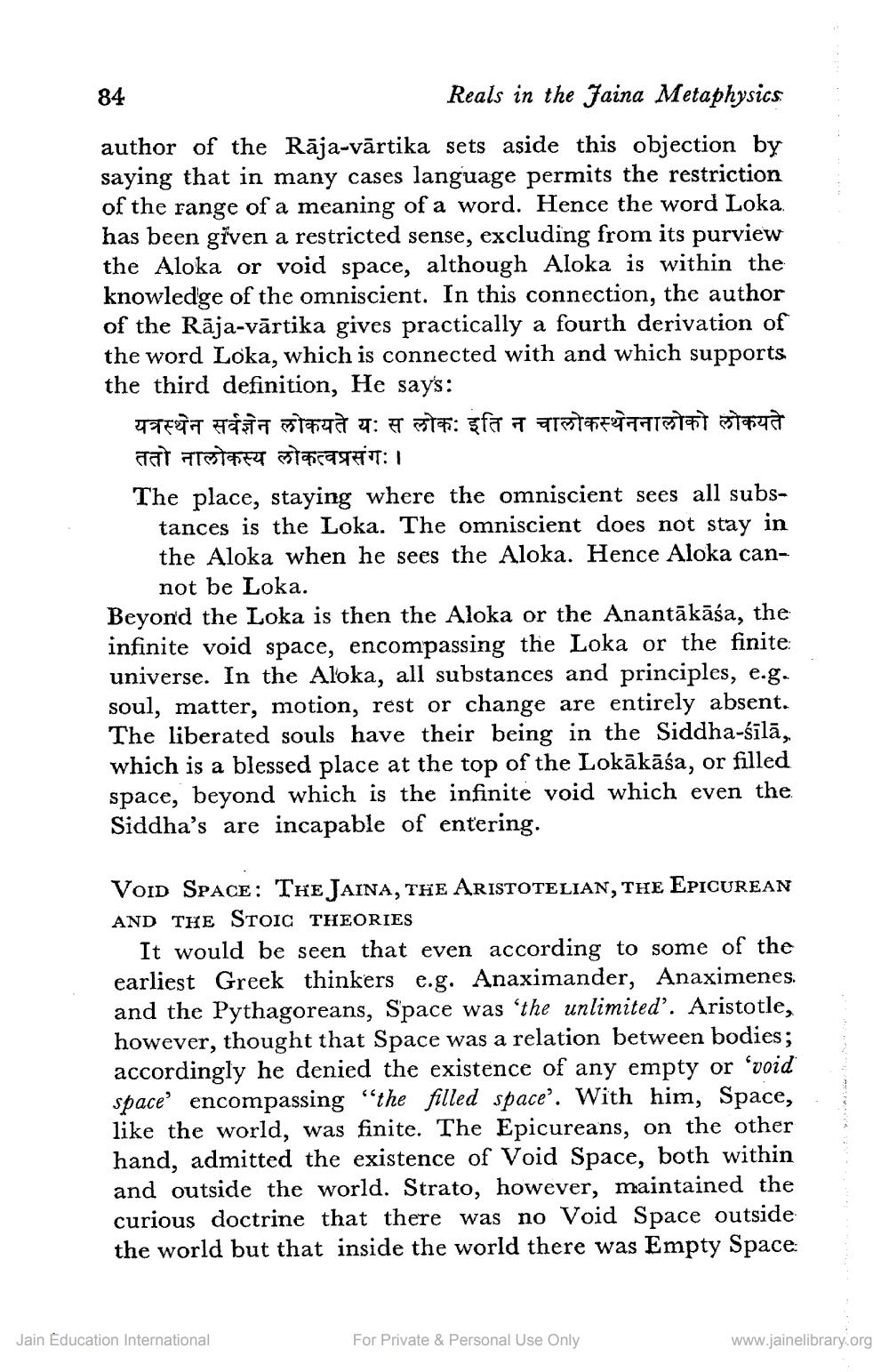________________
84
Reals in the Jaina Metaphysics author of the Rāja-vārtika sets aside this objection by saying that in many cases language permits the restriction of the range of a meaning of a word. Hence the word Loka. has been given a restricted sense, excluding from its purview the Aloka or void space, although Aloka is within the knowledge of the omniscient. In this connection, the author of the Rāja-vārtika gives practically a fourth derivation of the word Loka, which is connected with and which supports the third definition, He says:
यवस्थेन सर्वज्ञेन लोकयते यः स लोक: इति न चालोकस्थेननालोको लोकयते ततो नालोकस्य लोकत्वप्रसंगः । The place, staying where the omniscient sees all subs
tances is the Loka. The omniscient does not stay in the Aloka when he sees the Aloka. Hence Aloka can
not be Loka. Beyond the Loka is then the Aloka or the Anantākāśa, the infinite void space, encompassing the Loka or the finite universe. In the Aloka, all substances and principles, e.g. soul, matter, motion, rest or change are entirely absent. The liberated souls have their being in the Siddha-śīlā, which is a blessed place at the top of the Lokākāśa, or filled space, beyond which is the infinite void which even the Siddha's are incapable of entering.
VoID SPACE: THE JAINA, THE ARISTOTELIAN, THE EPICUREAN AND THE STOIC THEORIES
It would be seen that even according to some of the earliest Greek thinkers e.g. Anaximander, Anaximenes. and the Pythagoreans, Space was 'the unlimited'. Aristotle, however, thought that Space was a relation between bodies; accordingly he denied the existence of any empty or ‘void space' encompassing "the filled space'. With him, Space, like the world, was finite. The Epicureans, on the other hand, admitted the existence of Void Space, both within and outside the world. Strato, however, maintained the curious doctrine that there was no Void Space outside the world but that inside the world there was Empty Space:
Jain Education International
For Private & Personal Use Only
www.jainelibrary.org




